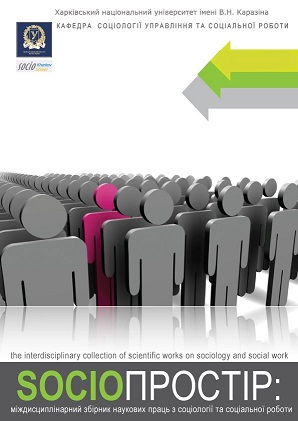Social demand for Healthy Food for pupils in Ukraine: Case of Kharkiv region
Abstract
The article discusses the issue of healthy eating in Ukraine, namely the public demand for healthy eating and, as a result, the demand for reforming the nutrition system. The focus of the study is on students, which was done for several reasons: eating habits are formed at school age and become the basis for attitudes towards nutrition in adulthood; students are a social group that is particularly influenced by media marketing technologies and the advertising industry. Marketing in the media mainly promotes fast food and other types of junk food, which contradicts the formation of a healthy lifestyle. The Department of Science and Education of the Kharkiv Regional State Administration, together with V. N. Karazin Kharkiv National University, conducted a survey of 8-11th grade students of general secondary education institutions in Kharkiv region about their diet at school and at home. The online survey of students lasted from March 10 to April 12, 2021. A survey of parents and teachers of students was conducted from April 26 to July 1, 2021. The article analyzes the results of the study of nutrition in schools in Kharkiv region in several areas: sufficiency, accessibility of school meals, habits and attitudes. One of the main conclusions reached by the authors is that there is a demand for healthy food in schools and for improving the school diet. This conclusion raised the following research question: how to meet this demand. However, this issue is a systemic one, and therefore its solution plan should include the interests of all stakeholders. Based on the common areas of the concept of sustainable development and the theory of social cohesion, the authors propose the introduction of innovative living laboratories. Innovation laboratories are aimed at involving consumers in the evaluation of products and services along with other stakeholders. The article was published within the framework of the project "Stimulating Urban Food System Transformation through the Implementation of Innovative Living Laboratories" (FUSILLI) under the grant agreement № 101000717 (HORIZON2020).
Downloads
References
1. WHO (2020), Healthy diet. Retrieved from https://www.who.int/ru/newsroom/fact-sheets/detail/healthy-diet.
2. Baran, G. & Berkowicz, A. (2020). Sustainability Living Labs as a Methodological Approach to Research on the Cultural Drivers of Sustainable Development. Sustainability, vol. 12 (12). 1-16. http://dx.doi.org/10.3390/su12124835.

